Listening in Relation
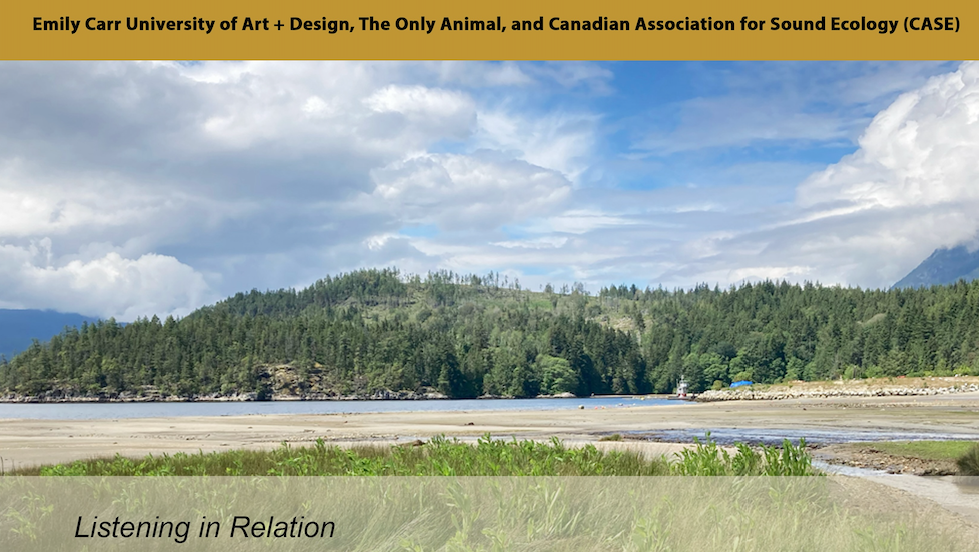
Emily Carr University of Art & Design (ECU), in partnership with the Canadian Association for Sound Ecology (CASE) and The Only Animal (TOA), completed a series of events over 7 months under the auspices of a NSERC Mobilize Grant project titled Listening in Relation (LiR). Spanning Fall Equinox to Spring Equinox (September 2024 – March 2025), the various offerings invited members from a diverse set of local and national communities across research, art making, and other practices to discuss the ways in which listening, sound-making, and land-based material art practices— in relation to thought and creative practices in decolonization—can help foster care for more-than-human lifeworlds.
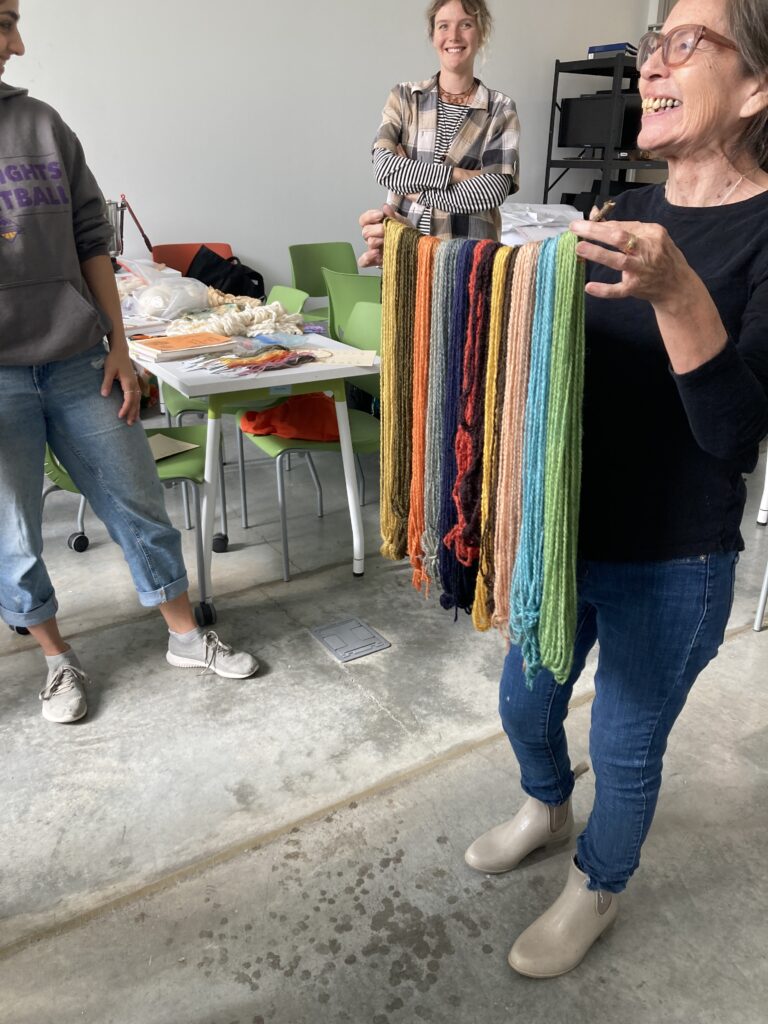
Rita and Zoe Kompst giving a natural dye workshop
Events took place on both the east and west coast of Canada (Turtle Island). The project cultivated attentive, collaborative, and decolonial practices across diverse events including sound walks, sound improvisation workshops, reading groups and discussions, botanical printmaking and cordage weaving. Artists/facilitators included Rita and Zoe Kompst, Toni-Leah C. Yake, Anju Singh, Adrian Avendaño, Lara Felsing, among many other community members whose experiences, presentations, and discussions generated reflective and thoughtful approaches to decolonial land-based practice.
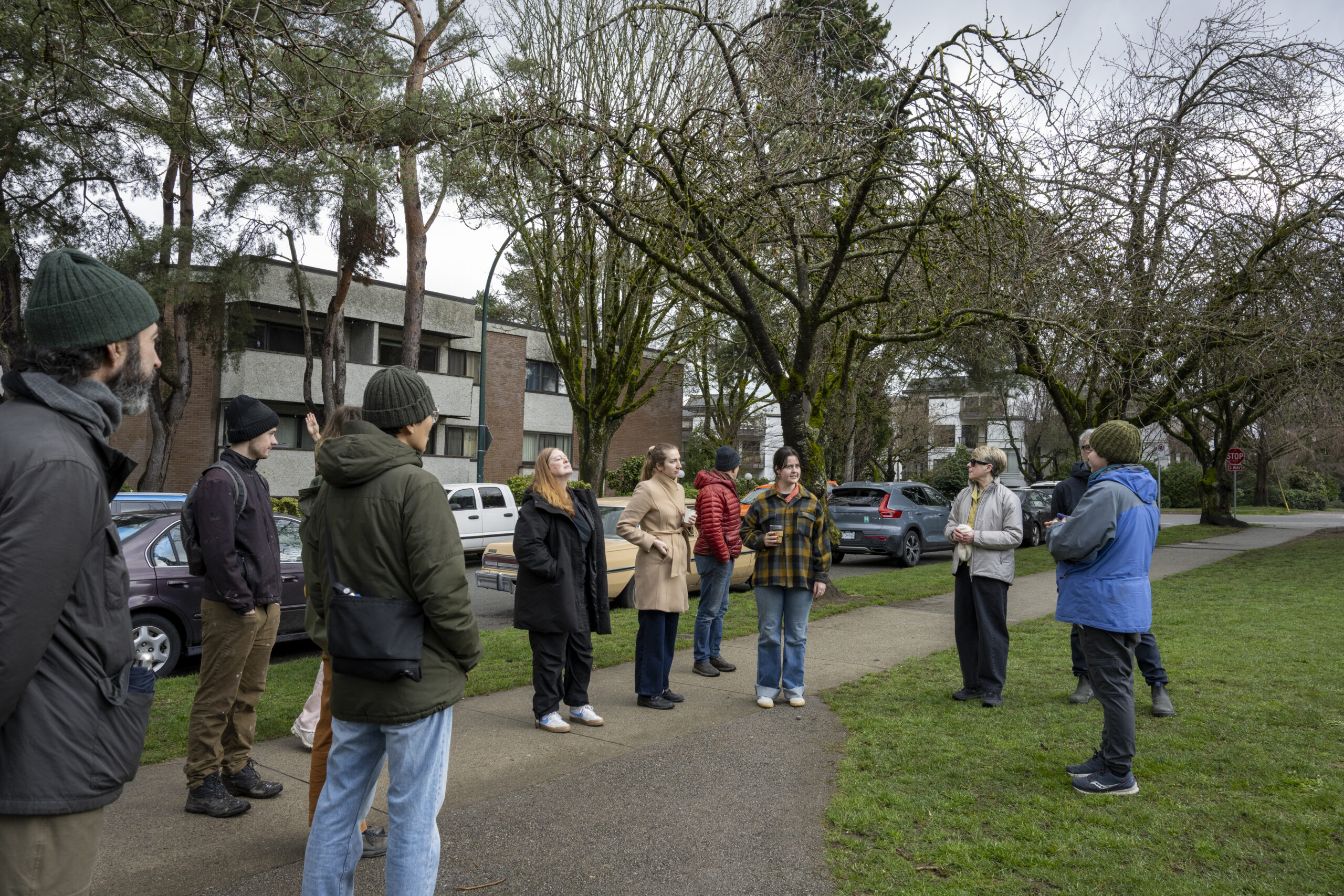
Clare Price conducting a soundwalk in Vancouver as part of the Equinox Roundtable
The LiR Final Report documents all the events and includes details on the research and thematic outcomes, and foreword looking questions.
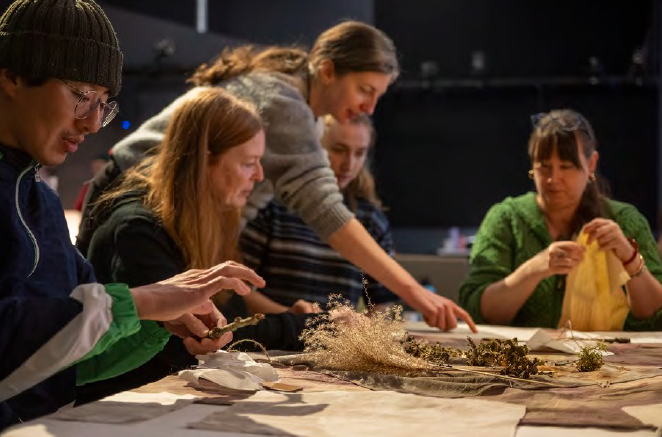
Barbara Adler of The Only Animal giving a plant dye workshop
The THEMATIC OUTCOMES from the Listening in Relation project are:
Decolonial Relations & Kinship: The practices of decolonization and kinship were expanded through readings, presentations, conversations, and workshops across events.
Protocols of Field Recording: A Slow Social Club workshop by Anju Singh directly addressed ethical considerations while field recording; relatedly, Rita and Zoe Kompst led a workshop on Musqueam harvesting protocols, a concept that could be applied to ‘sonic’ harvesting techniques.
Land-Based Methods & Material Practices: Decolonial relations and heightened kinship are deeply connected to sustainable applications of land-based methods and materials. The Keynote Panel offered grounded examples of decolonizing practice, as each keynote spoke to their individual and communal relationships with reciprocal, land-based, and cultural harvesting practices.
Soundwalking, Soundscape Design, and Sound Art: The project featured a number of soundwalks, soundscape compositions, and sound art workshops which prompted collective reflections on listening and composition. During the Equinox Roundtable, a collection of soundscapes were also available for concurrent listening in a ‘soundscape listening room’.
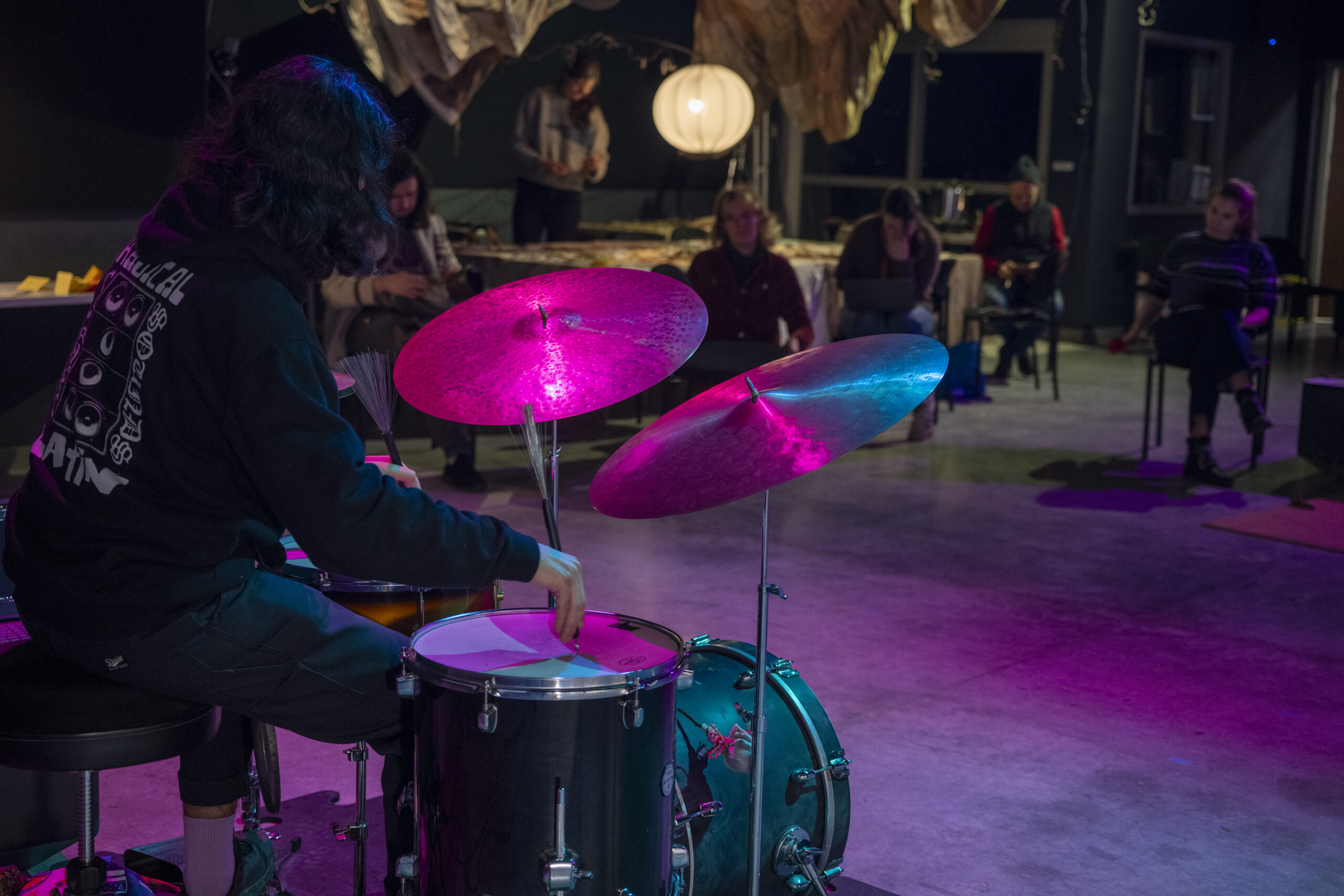
Adrian Avendaño giving a sound making workshop with field recordings and percussion
For an expanded review on themes and further reflections, see the individual event descriptions in the LiR Final Report. Thematic trends and questions for future research are also listed throughout the report.
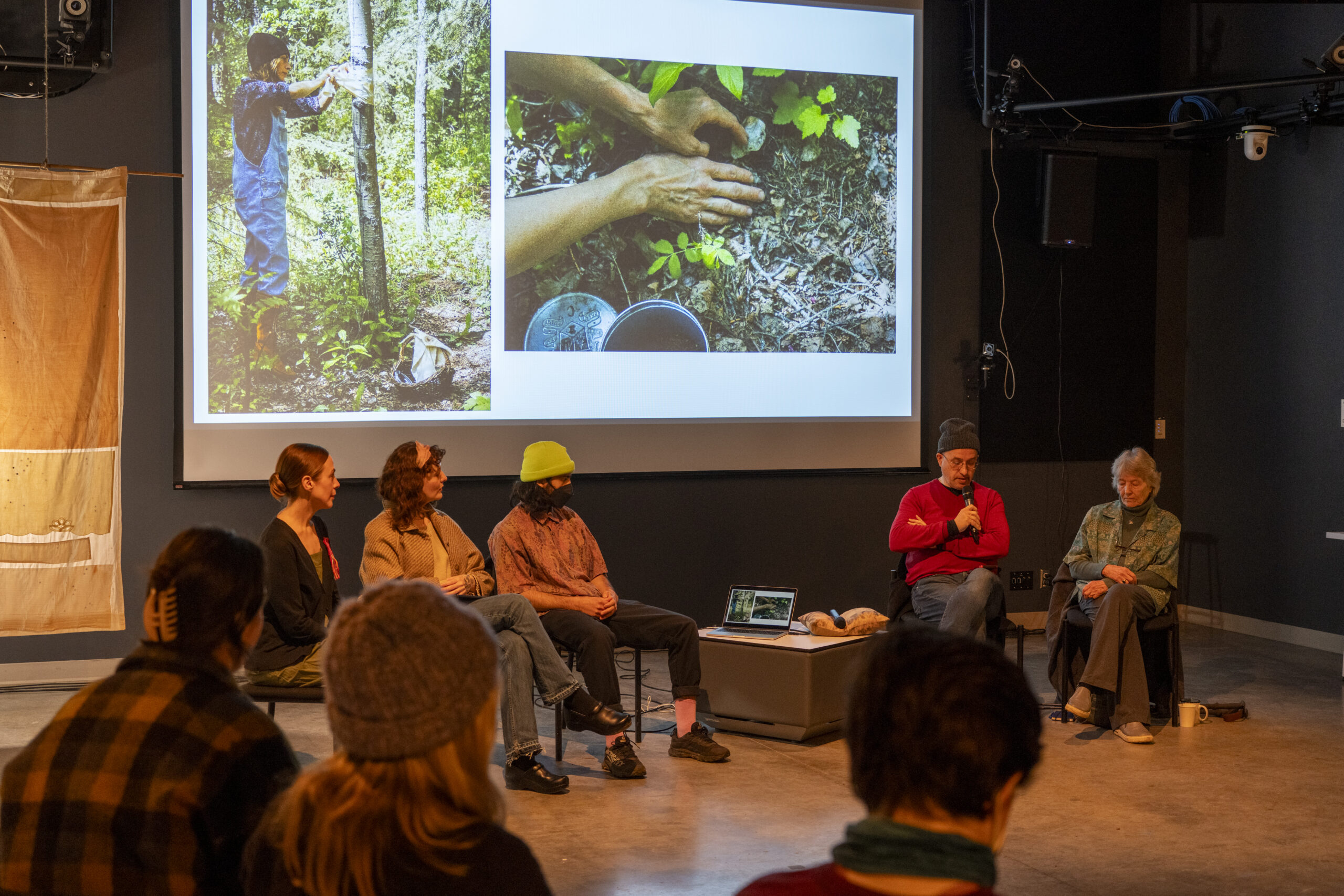
Keynote panel at Equinox Roundtable with Lara Felsing, Toni-Leah C. Yake, Adrian Avendaño, Claude Schryer and Hildegard Westerkamp
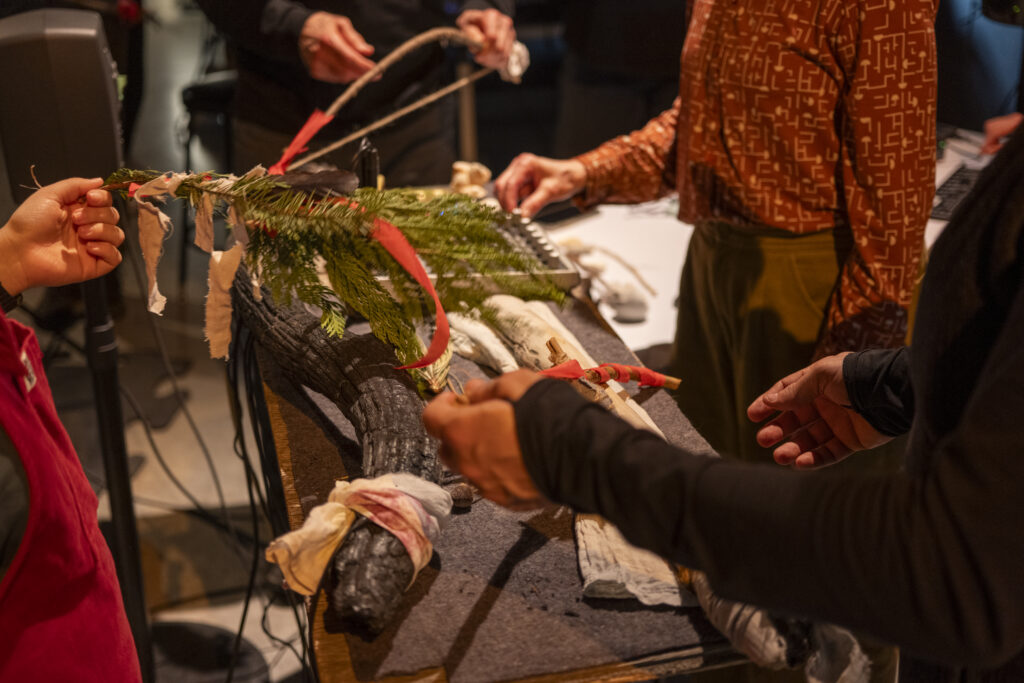
Land-based instrument making with Lara Felsing and Branching Songs Ensemble
for more information contact: Julie Andreyev, jandreyev @ ecuad.ca
______________
Listening in Relation is supported by:
2024 ECU-RIO NSERC Mobilize grant,
Canadian Association for Sound Ecology,
The Only Animal,
Basically Good Media Lab, ECU,
University of Laval